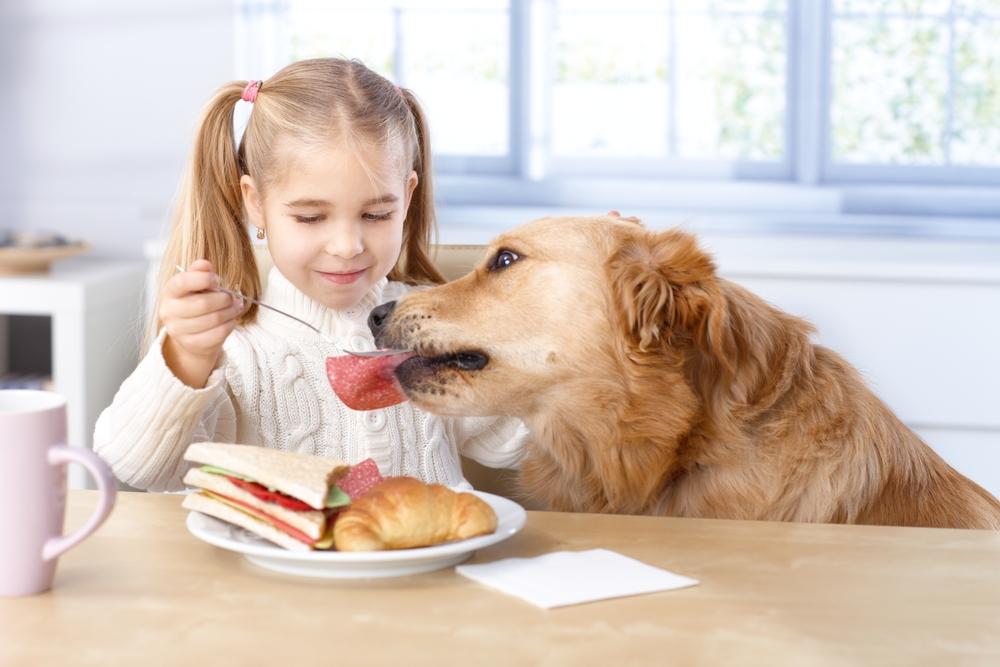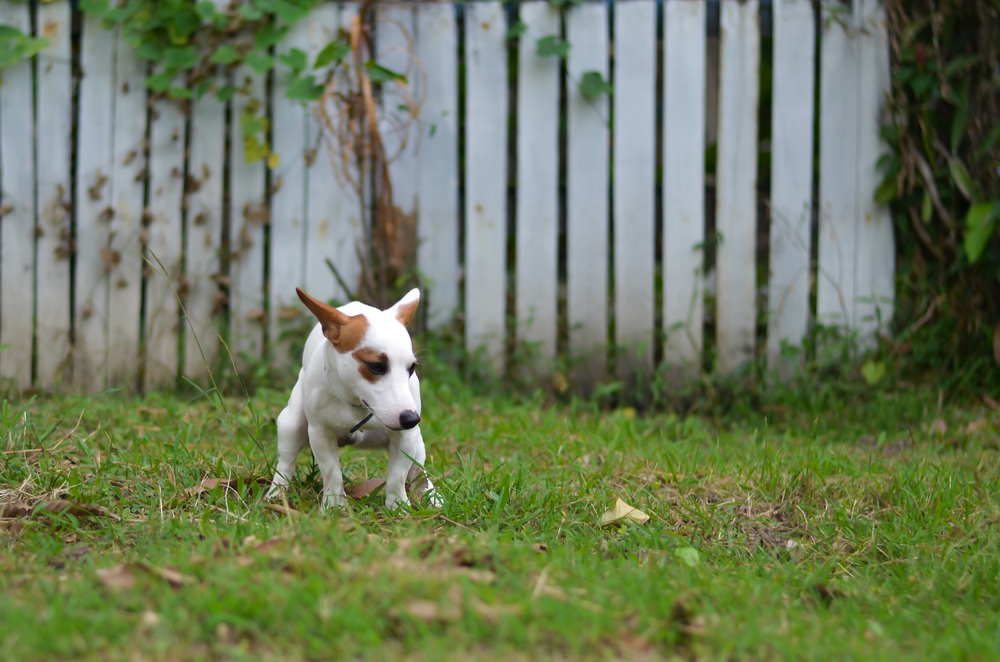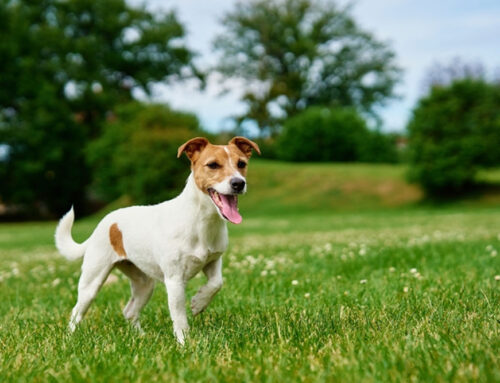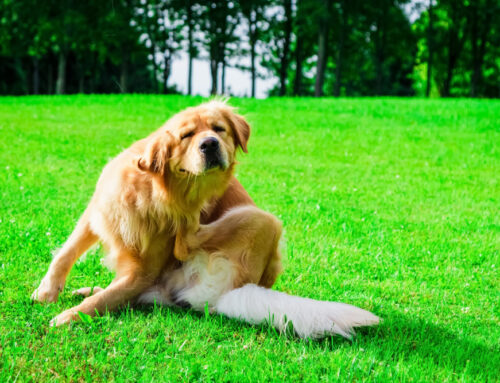Diarrhea is a common problem for dogs, and many factors can be responsible. If your dog is affected, you may be wondering whether they need veterinary attention. Our veterinarians in south Austin at Oliver Animal Hospital share information about what causes diarrhea in dogs, when you should be worried, and how you can address the problem.
Dog diarrhea causes
While some conditions that disrupt your dog’s intestinal tract are innocuous, others can be life-threatening. Many things can cause diarrhea, but the most common causes include:
- Dietary indiscretion — Dogs aren’t the most discriminating eaters, and when they eat too much or ingest garbage or spoiled meat (e.g., meat from a carcass they find), this can result in diarrhea.
- Change in diet — Your dog’s intestinal tract needs time to adjust to new proteins, and changing their diet abruptly can cause diarrhea.
- Parasites — Intestinal parasites, such as hookworms, roundworms, whipworms, coccidia, and giardia, can cause diarrhea, especially in puppies and immunocompromised dogs.
- Toxicities — Many common foods, plants, and household products are toxic to pets and can lead to diarrhea. If your pet ingests a toxin, immediately call Oliver Animal Hospital or Animal Poison Control to get expert advice.
- Foreign objects — Many dogs will swallow anything, and if they ingest a foreign object, such as a sock, toy, or rock, they can develop an intestinal obstruction, causing diarrhea.
- Viral infections — Parvovirus, distemper, and coronavirus can cause diarrhea in puppies and dogs.
- Bacterial infections — Bacteria, such as Clostridium perfringens, Clostridium difficile, and Salmonella, can result in diarrhea.
- Underlying disease — Dogs affected by kidney disease, liver disease, inflammatory bowel disease, and certain cancers can have diarrhea.
- Food allergies — Most allergies in dogs show up as itchy skin, but about 30% of food allergic dogs have gastrointestinal signs, including diarrhea.
- Medications — Certain medications can cause diarrhea.
- Stress — Extreme anxiety and stress can result in diarrhea.
Assessing dog diarrhea
The characteristics of your dog’s diarrhea can help determine the cause. Dog diarrhea is typically characterized as large bowel or small bowel diarrhea.
- Large bowel diarrhea — When your dog’s diarrhea originates in the large intestine or colon, characteristics include increased frequency, small stool volumes, mucus covered stool, and straining to defecate. Blood also may be seen if blood vessels break when your dog is straining to defecate.
- Small bowel diarrhea — When your dog’s diarrhea originates in the small intestine, characteristics include large stools produced at normal frequency, fatty and frothy stool, and no straining. If left untreated, small bowel diarrhea can lead to weight loss, a poor hair coat, and a ravenous appetite.
Problematic dog diarrhea
Not every diarrhea episode is cause for concern, but your dog should receive veterinary attention in the following situations:
- Other signs — If your dog has other signs, such as lethargy, fever, vomiting, pain, or dry mucous membranes, they should be evaluated by a veterinarian.
- Bloody diarrhea — If you notice blood in your dog’s diarrhea, they should receive veterinary attention.
- Long duration — If your dog’s diarrhea persists for several days, they should see a veterinarian.
- Puppies and senior dogs — Puppies and senior dogs are at higher risk for complications associated with diarrhea, and they should always be evaluated by a veterinarian.
- Underlying conditions — Dogs affected by other conditions, such as diabetes, cancer, or any other medical issue, should receive veterinary attention.
You know your dog best, and if you are concerned, don’t hesitate to call our veterinary team for advice on your dog’s condition.
Managing dog diarrhea
If your dog has diarrhea but seems otherwise healthy, you can try to manage the condition at home. Options include:
- Fasting — Withhold your dog’s food for 12 to 24 hours to allow their intestinal tract time to settle. Ensure they have access to fresh water during this time. Puppies, senior dogs, and small breed dogs should not have their food withheld unless you are advised to do so by a veterinary professional.
- Plain foods — If your dog’s stool has remained normal for 12 to 24 hours, you can offer them small amounts of plain foods, such as boiled, skinless chicken and rice.
Avoid giving your dog human medications for diarrhea because these drugs can result in problems for your pet. If fasting and a bland diet don’t remedy their diarrhea, they should be seen by a veterinarian.
Preventing dog diarrhea

Dog diarrhea can’t always be avoided, but you can take steps to decrease your pet’s risk. These include:
- Don’t feed your dog table scraps — Table scraps can be high in fat and can cause diarrhea. Feeding your dog a consistent, healthy diet is the best way to ensure their gastrointestinal tract is not disrupted.
- Keep garbage containers sealed — Ensure you keep your garbage in sealed containers to prevent dumpster diving.
- Change your dog’s food gradually — If you change your dog’s diet, do so gradually over one to two weeks to allow their gastrointestinal tract time to adjust.
- Read the label — Always read the label on any item you offer your pet to ensure the ingredients aren’t toxic to them.
- Provide regular wellness care — Bring your dog to Oliver Animal Hospital at least once a year for a wellness exam so we can detect underlying conditions that could cause diarrhea.
- Keep your dog’s vaccines up to date — Ensure your dog’s vaccines remain up to date to prevent illnesses that can cause diarrhea.
- Provide year-round parasite prevention — Your dog should receive year-round parasite prevention to protect them from gastrointestinal parasites.
Hopefully this information will help you address your dog’s diarrhea. If you are concerned, however, contact our veterinarians in south Austin at Oliver Animal Hospital so we can determine the cause and fix the problem.







Leave A Comment